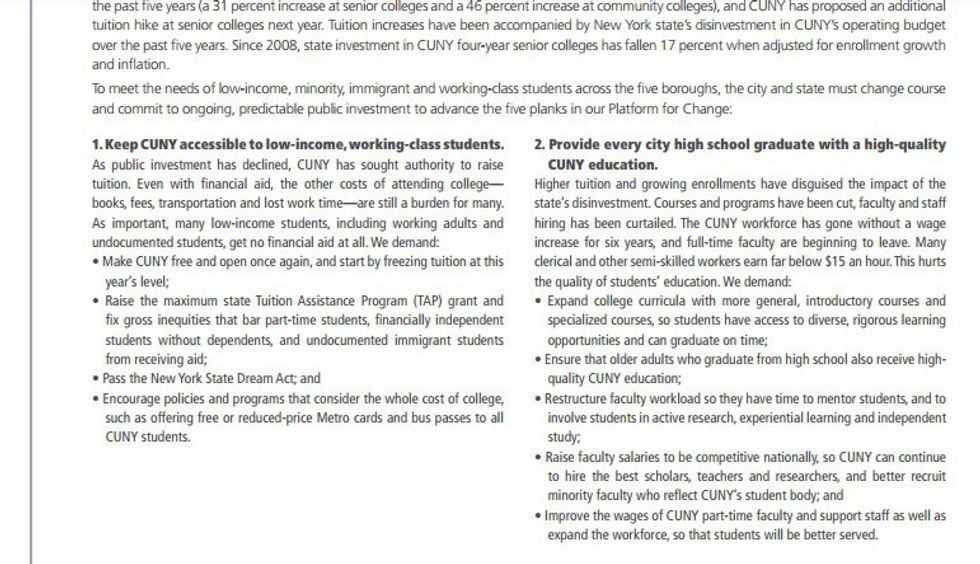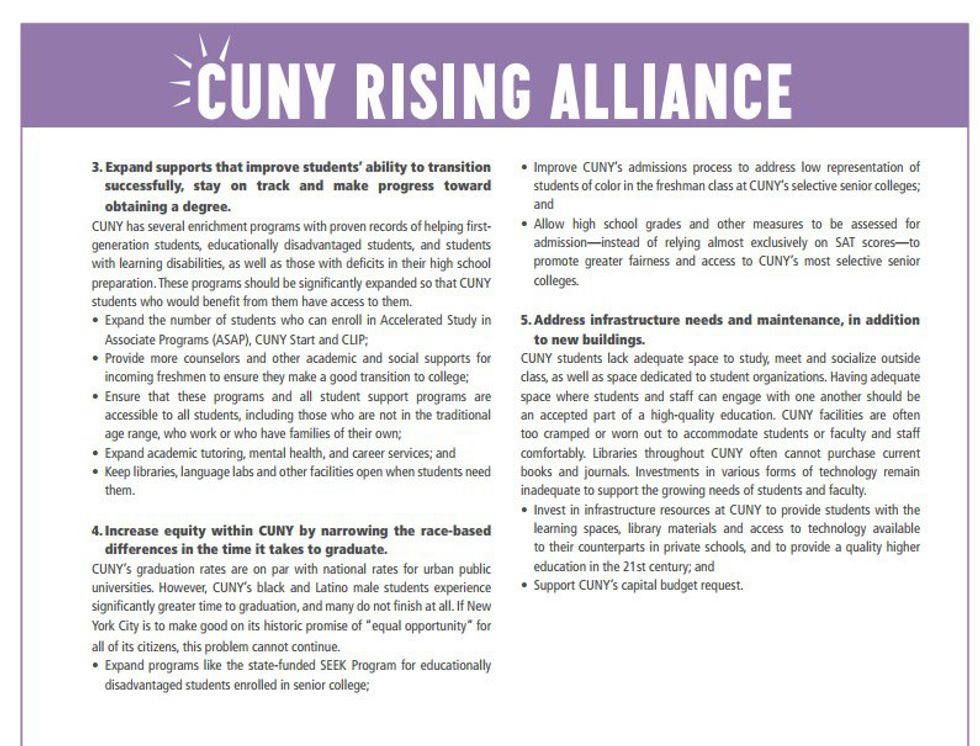The City University of New York is the largest public university system in the United States, comprising of eleven senior colleges, seven community colleges, five graduate and professional schools, and the Macaulay Honors College. In terms of enrollment, CUNY is the third largest university system in the U.S. Students across the City and the nation are clamoring for free higher education; in New York, the CUNY Rising Alliance is a coalition of organizations that are fighting to make CUNY accessible to low-income, working-class students by first freezing the planned tuition hikes that the university is trying to implement.
I am probably one of the (many?) students who are against making higher education free. I agree with the Alliance on the tuition freeze issues as I don’t want tuition to increase 250-300 dollars every year for the next 4 to 5 years. However, I am a firm believer that making higher education free will devalue a bachelor’s degree even more than what it is now, while not creating the ‘jobs’ that supporters of free education claim. An example of this is the high school diploma, since public education is free from k-12, students’ quality of education has lowered, and it is nearly impossible for a person with just a high school diploma to find a job to support a family.
CUNY was indeed tuition free until the fall of ’76, when under pressure from the federal government and with the city amidst a fiscal crisis the free tuition policy was discontinued. However, since 1976, programs from the state and federal government have allowed thousands of students to attend CUNY tuition free or at a very low cost. Such programs include the federal Pell Grants, the New York State Tuition Assistance Program (TAP), and the SEEK/College Discovery Program. For students like me, these program have helped us obtain an education at little to no cost, while students who do not receive any of these grants can still get an education at an affordable price. For New York State residents, the CUNY average tuition is $6300 for students enrolled at senior colleges.
The Alliance’s second point, “provide every city high school graduate with a high-quality CUNY education” seems to me almost counter intuitive, as the argument could be made that with the current policies in place, CUNY is not providing a high-quality education at many of their universities and making these universities free will do nothing to change this, it might just make matters worse.
I would argue that to make CUNY better, the university should require higher SAT scores and admissions essays. I would also argue that the Department of Education has failed its student body by not preparing its students for higher education; the alliance claim that black and Latino students “experience greater time to graduation…and many do not finish at all” which is a true claim, however this claim does not take into consideration that many of the students who graduate from high school in NYC and enroll in CUNY end up placed in remedial math and English classes that often times are not for credit and further delay their degree. There comes a point in which the university must compromise the representation of its students, for the value of its education.
Community colleges should be the pathway to students who the NYDOE has done a poor job of preparing for senior college admissions. I think that the Alliance should focus its efforts into making community colleges free, and compromising by pushing for an increase in the requirements for senior colleges. As it stands, the Alliance has good intentions, however, I do not think that tuition-free will answer any of the points highlighted here.























